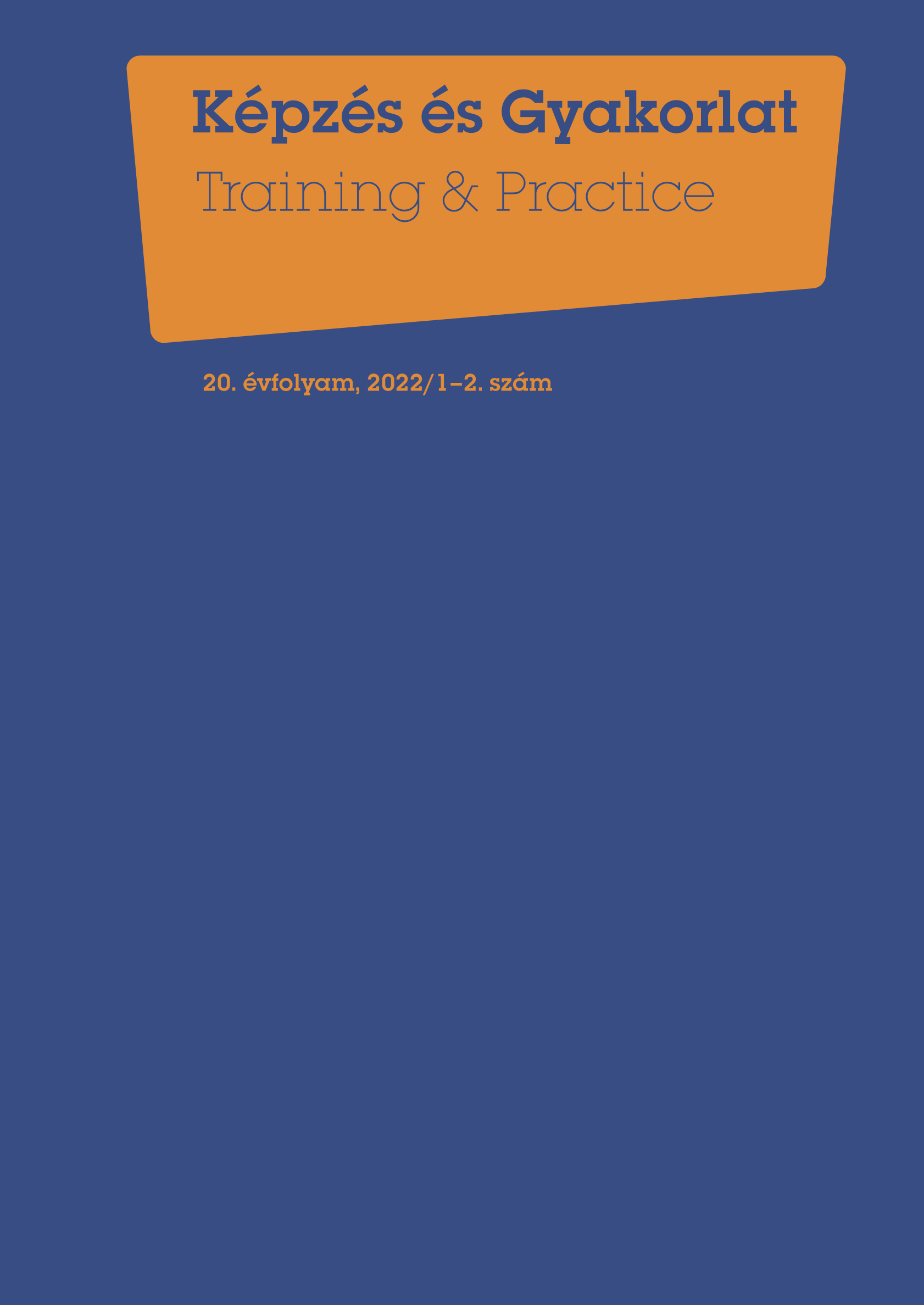In the Service of Creative Learning and Teaching – Gamification With the Self-Developed Motivapp Application
DOI:
https://doi.org/10.17165/TP.2022.1-2.10Abstract
Internationally and domestically, educational research focuses on the educational challenges of the 21st century, and how to teach and motivate today’s generation most effectively. Teaching methods are sometimes underdeveloped and do not adapt to the rapidly evolving world or to the interest of children. The literature places significant emphasis on gamification as a motivational factor. We need a motivational tool that arouses and then maintains interest for a long time, and is realized in an environment that is used by students. In our study, we show how the gamification we used, contributed to the birth of a mobile application, MotivApp. The mobile application aims to motivate students to learn and reduce stress at school.
References
Anisa, K. K., Marmanto, S., & Supriyadi, S. (2020). The effect of gamification on students’ motivation in learning English. Leksika, Vol. 10 No. 1. pp. 22–28.
Buckingham, D. (szerk., 2008). Youth, Identity, and Digital Media. John D. and Catherine T. MacArthur Foundation Series on Digital Media and Learning. Cambridge, MA: The MIT Press.
Csapó, B. (2003). Az iskolai osztályok közötti különbségek és az oktatási rendszer demokrati- zálása. Iskolakultúra, 13. évf. 8. sz. pp. 107–117.
Fromann, R. & Damsa, A. (2016). A gamifikáció (játékosítás) motivációs eszköztára az okta- tásban. A gamifikáció jelentése és jelentősége. Új Pedagógiai Szemle, 66. évf. 3-4. sz. pp. 76–82.
Gyarmathy, É. (2013). Kutyaharapást szőrivel avagy a digitális technika alkalmazása a taní- tásban és a fejlesztésben. Inspiráció – ISZE Tehetségsegítő Tanács Különszáma NTP- TTM-12-P-018. 2- 11. Budapest: Informatika-Számítástechnika Tanárok Egyesülete.
Gyarmathy, É. (2018). Az ideális iskola hat jellemzője. [online] https://hvg.hu/elet/20180125_Gyarmathy_Eva_Az_idealis_iskola_hat_jellemzoje [2021.01.31.]
Jakab, Gy. (2014). A digitális kultúra térhódítása, mint pedagógiai kihívás. In: Havancsák, A. & Oláh, I. (szerk.), Perspektívák a neveléstudományban. Válogatás a Pécsi Tudomány- egyetem „Oktatás és Társadalom” Neveléstudományi Doktori Iskola kutatóinak írásaiból (pp. 113–126). Pécs: PTE BTK „Oktatás és Társadalom” Neveléstudományi Doktori Iskola.
Kákonyi, L. (2016). Mire van szükségük? Digitális tananyagok, tanulásszervezési módszerek. Nemzetközi kitekintés. Új Pedagógiai Szemle, 66. évf. 3-4, pp.89–95.
Kristóf, Zs. (2020). International trends of remote teaching ordered in light of the Coronavi- rus(COVID-19) and its most popular video conferencing applications that implement com- munication. Central European Journal of Educational Research, Vol. 2. No. 2. pp. 84–92. DOI: https://doi.org/10.37441/CEJER/2020/2/2/7917
Mérő, L. (2014). A csodák logikája. Budapest: Tericum.
Ollé J. (2013a): Az oktatási környezetek tipológiája, eLearning és távoktatás értelmezések. [online] http://slidesha.re/WjLezX [2022.01.31.]
Prievara, T. & Nádori, G. (2018). A 21. századi iskola. Budapest: Enabler Kft.
Rajnai, J. (2003). Az osztályozás és a buktatás problematikája a mai magyar közoktatásban. Új Pedagógiai Szemle, 53. évf. 11. sz. pp. 67–76.
Szabó, É. (2015). A digitális szakadékon innen és túl: a tanárszerep változása a XXI. században. Oktatás-Informatika, 7. évf. 1. sz. pp. 17–31.
Szabó, Cs., Szendrák, J. & Szörényi, S. (2021). A játékosítás lehetőségei a köznevelésben. Képzés és Gyakorlat / Training And Practice, 19. évf. 1–2. sz. pp. 141-150. DOI: https://doi.org/10.17165/TP.2021.1-2.14
Szénási, L. (2019). A gamifikáció lehetséges formái az iskolai katechézisben. Conference: 11th International Conference of J. Selye University DOI: https://doi.org/10.36007/3327.2019.171-178
Treiblmaier, H., & Putz, L.-M. (2020). Gamification as a moderator for the impact of intrinsic motivation: Findings from a multigroup field experiment. Learning and Motivation, Vol. 71 (August 2020) 101655. DOI: https://doi.org/10.1016/j.lmot.2020.101655
Downloads
Published
Issue
Section
License
Copyright (c) 2022 Milu Ildikó, Balogh Bence, Nagy Dávid, Zsófia Kocsis

This work is licensed under a Creative Commons Attribution-NonCommercial-NoDerivatives 4.0 International License.












